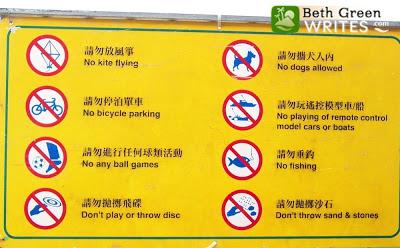
Moving to a new country is exhilarating.
Photo by D.C. Pelka
First stage, Honeymoon: You’re thrilled to be here in [insert country name]. It’s wonderful! Who wouldn’t like the people? The culture is so quaint! There are so many new things to see and do. What do you call that anyway, in [insert language]? Quick, let me write it down. I’m just learning so much!
Moving to a new culture is more than just a trip abroad. It’s a head trip, too. When we transition from a known quantity to an unknown, we’re setting ourselves up to react to a whole new series of experiences. I grew up traveling with my parents on a sailboat, and I’d visited 27 countries by the time I entered high school. I spent a further year abroad as a university student, in Spain. So, when I moved abroad in my 20s to teach English as a foreign language, I felt that in one respect I was rather above the rest of the travelers I met. Culture shock couldn’t touch me, oh no.
And, it was true that, living in Prague and coming from the U.S., there wasn’t all that much to feel shocked about. Aside from language, local customs and foodstuffs were not terribly different, and while there were definitely things to adjust to, I didn’t experience the swings in temperament I witnessed in some of my friends and colleagues. There were patterns, I saw—mostly within in a six-month time frame—of people vacillating between exhilaration and despair. One friend I knew for six months in Prague: he showed up, he loved it, then he hated it, then he found a job in another country. But, by the time of his going-away party, he told me he wished he had given the city another few months before leaving. Thank goodness, I thought, that I don’t get culture shock.
Then, I moved to China.
Second stage, Negotiation: People are staring at me. Why are they always staring at me? Do I have something on my face? Did I forget to button my fly? Oh, God. Look, look at that! See what that guy just did? I can’t believe it. No one else noticed! How can they live like this? Back in [insert home country] we’d never stand for that. Nope. No way. What is that guy saying? Hey, [tries to speak in local language]. Do you understand? Do YOU underSTAND? [Insert expletive], this is useless. Why do I even bother?

Culture shock can make you feel like the
host culture restricts you too much.
The first month in China was glorious. There was so much to do, so much to explore. I had bursts of energy, and then took long naps, blaming it on the heat. My new job took tons of preparation, but I still found time to go out with my new colleagues, see the city, and go on trips on my days off. And the food! The best I’d ever tried. How could it be that so few people I knew came to China to travel?
The second month, I started to feel less optimistic about learning Mandarin. I noticed that the other teachers, the ones who had been in the country longer, didn’t have much good to say about living in China. I wondered why they stayed if they didn’t like it. The food was still enticing, however, and I was getting to be a chopstick whiz.
The third month, I was laughing along with my colleagues’ jokes a little. I mean, yeah, I liked China a lot, but sure, the public toilets left a lot to be desired! And, sure, people were mostly friendly, but why were they staring so much? Local restaurants were just my thing. Now, I was actually able to order without the waiters laughing at me—well, actually, they still laughed at me, but I got the food I wanted.
The fourth month, I noticed I was grouchy a lot. The students were wearing on my nerves. My apartment had problems that were never fixed quite right. The weather seemed to be cruelly singling me out: raining the days I had a white top and no umbrella, freezing the days I wore sandals and shorts, sweltering the time I toted a sweater. The food lost its luster. It was too salty. Too overdone. Too slippery. Why couldn’t we find bread that wasn’t sweet? How could a culture with such culinary masterpieces consent to sell only Kraft singles as cheese? And why was I gaining weight while all these Chinese people stayed so slim?
The fifth month, I ordered a mango shake by accident. Let me be clear—I hate mangoes. While this may be blasphemy to most fruit-lovers, I think I’m mildly allergic to them. Also, when I was young my family was once given a 5-gallon bucket of mangoes, which we proceeded to eat for months and months, until the last jar of mango preserves my mother had made was exhausted. Since then, they turn my stomach.
Now, usually, when I order something by mistake, I just eat it. To the irritation of my partner, I almost never complain in restaurants, even when it’s warranted. But on this day—not a particularly stressful day—instead of sorting out the problem, I pitched a little fit in the juice bar. People gathered to watch the display.
We left, shakeless, and I instantly felt terrible. I burst into tears on the street in front of the shop. Where were my manners? Where was my internal commitment to blend in, to be the good American abroad?
Aha, I thought, between sobs. This is culture shock.
Third stage, Adjustment: My [insert language] is coming along. I feel progress, finally! I’ve booked tickets to go home—but just for a visit. And, my new friends tell me that I should really go with them to this other town on our next holiday. I think it will be great. I’m really looking forward to it.

Don't feed me mangoes.
Photo by D.C. Pelka.
Fourth stage, Mastery: Been there, done that. I’m here, and I can handle it. Want me to show you around?
By the time a year had passed, and it was time for my partner and me to think about whether we’d move on or renew our contracts so we could explore more of China, we’d really got the hang of things. We were still largely illiterate, but our spoken Chinese was improving. Friends came to visit, and it felt great to play guide. I was sure I wanted to stay in China longer the day that we visited the Guangzhou jade market, when I helped a frustrated British woman communicate with a seller.
After the deal was over, she looked at me with big eyes.
“Thank you,” she said. “That was amazing. How do you do it?”
“It just takes time.” I said. “You’ll get there.”

